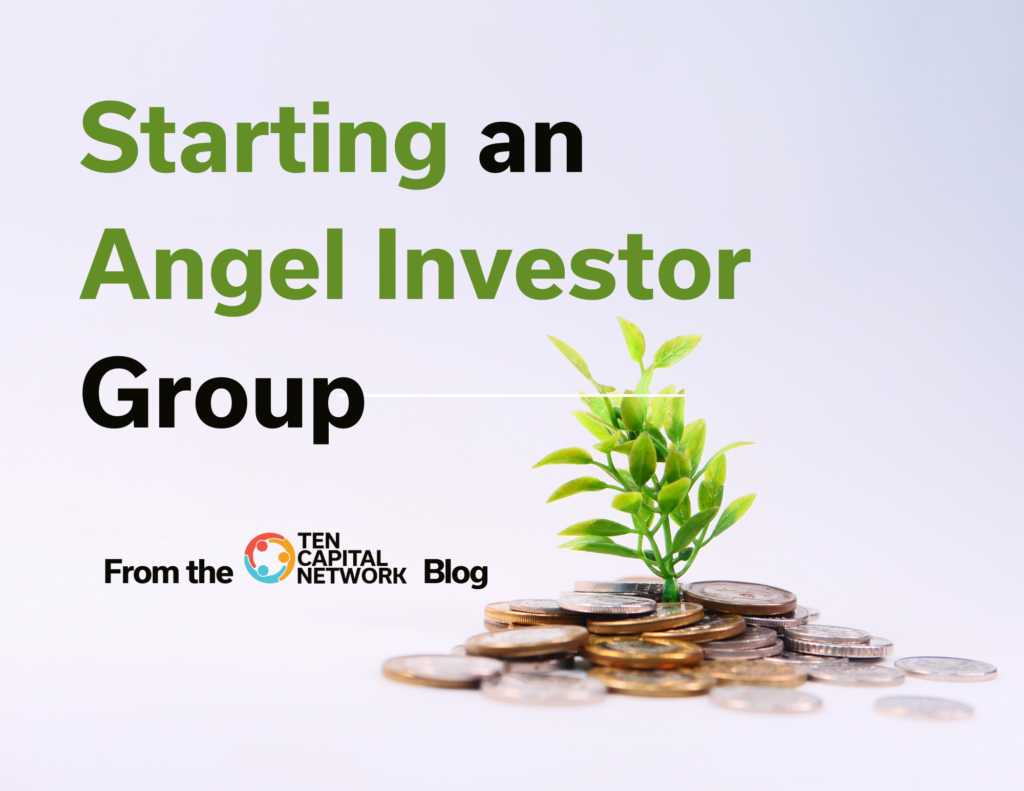2 min read Starting an angel investment group can be a tempting option for some investors. It can definitely be a rewarding and lucrative process. Keep in mind however that this does not come without its difficulties. If you are considering starting an angel investor group, consider the information below before getting started.
Should You Start an Angel Network?
Next, before launching an angel network, assess your community as follows:
- Do you have accredited investors interested in startup investing?
- You have any investors who will take the lead on diligence and investing for each deal?
- Do you have a champion who will organize and lead the angel group for the first two to three years?
- Do you have a flow of startups seeking funding that you can access?
- Is there a resource for incubating and educating those startups in the area?
- Are there local service providers such as attorneys, accountants, financial advisors, and others who can support the startups?
- Are there other investor groups that currently fund those deals in your community to support syndication?
- Is there access to follow-on funding for startups?
Research your community to see what currently exists and what must be built. Check with the local entrepreneur groups to make this assessment and get their potential support for starting an angel group.
Considering Service Providers
In setting up an angel network, it’s important to have support from services providers such as lawyers, accountants, and financial advisors. Startups will need legal, accounting, and financial support. Review your community for current service providers who are already helping the startups. Assess the skills of the providers to see if they are a fit for early-stage companies.
Some providers only work with more mature companies, but the angel network will be dealing with very early ones. Discuss with local entrepreneur groups and professional organizations about their experience with the providers. Identify the ones who provide the best experience for their clients. Reach out and develop a relationship with them as potential speakers, sponsors, or even members.
For those services missing from the community, reach out online to other organizations that can provide the support virtually. If the demand is big enough, providers will move to the area to support the community. This often occurs in entrepreneur hubs that are growing fast.
Liabilities and Disclosures
There’s risk in startup investing as most investments don’t pay a return to the investor. In running an angel network, one must take steps to mitigate liability. It’s a best practice to have all members sign liability waivers stating they understand the risk of startup investing and take responsibility for it. The waiver should indicate that each member makes their own investment decisions and the angel group is not recommending any startup for investment.
Members in the group should provide full disclosure. If the member has any relationship with a proposed startup such as advising, consulting, or otherwise, the member should disclose this to the other members. Each member can decide for themselves how that impacts their investment decision.
In syndicating deals to other groups, an angel network should have those groups sign liability waivers indicating that each investor is responsible for their due diligence. Most startups are raising capital from angel investors who are doing so under an SEC exemption. The angel group should have written confirmation from the members indicating that they are accredited investors.
Take care to cover these areas of liability for your angel network.
Read more on the TEN Capital Network eGuide: Leading an Angel Group

Hall T. Martin is the founder and CEO of the TEN Capital Network. TEN Capital has been connecting startups with investors for over ten years. You can connect with Hall about fundraising, business growth, and emerging technologies via LinkedIn or email: hallmartin@tencapital.group





